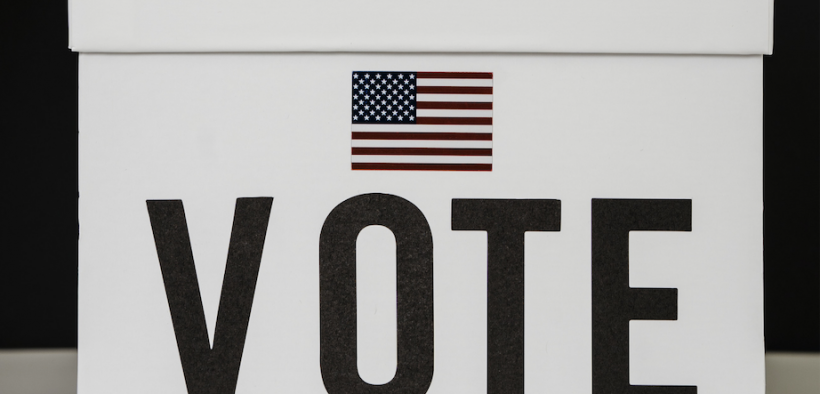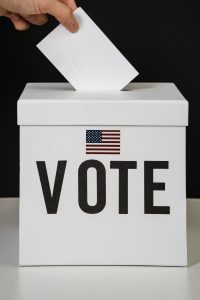“Dark Money” Charitable Gifts Increasingly Flow to Partisan Political Groups

While Uncle Sam grants Americans tax deductions for charitable giving, the government prohibits deductions for donations to political groups.

But a growing number of donors on the left and the right have used “dark money” to exploit a simple work-around:
- Donate money to qualified nonprofits;
- Receive a tax deduction;
- Watch as the nonprofits forward some or all of the donated money to political groups that aren’t qualified for deductions.
Such gifts swelled during 2020, an election year, according to two recent detailed reports:
- In December, OpenSecrets, a group that tracks tax returns to expose hidden political donations, reported: “Liberal ‘dark money’ groups’ revenue soared ahead of 2020 elections.”
- In January, the Chronicle of Philanthropy followed with its report, “$1 Billion in Gifts Attracts New Attention to the Rules on Charities and Political Giving.”
In 2020, politically progressive and liberal groups reaped a windfall from donors opposed to Donald Trump. The New Venture Fund, a regular recipient of gifts from tech billionaires (Jeff Bezos, Mark Zuckerberg, Melinda French Gates) and foundations (including Ford and MacArthur) received tax-deductible gifts of nearly $1 billion.
New Venture Fund then passed on significant sums to progressive political advocacy groups that can’t accept charitable gifts, including:
- $86 million to the Sixteen Thirty Fund, which does legitimate educational work about the Supreme Court, but was also involved in partisan advocacy over Trump’s three Court appointees;
- $44 million to America Votes, which rallies progressive voters to the polls.
As OpenSecrets reported:
Over the course of the election cycle, Sixteen Thirty Fund routed around $60 million into political committees boosting Democrats in federal races and more than $200 million to other 501(c)(4) nonprofit organizations that either spent directly on elections or gave to super PACs during the 2020 election cycle.
Significant charitable funding also flowed to a variety of state groups that got involved in local elections, but never revealed their funding sources:
Sixteen Thirty Fund also continued to support a network of pop-up dark money groups that aired issue ads attacking Senate Republicans in swing states throughout 2019 and 2020.
Access to MinistryWatch content is free. However, we hope you will support our work with your prayers and financial gifts. To make a donation, click here.
Funding flowed to numerous state advocacy groups, including:
- Piedmont Rising in North Carolina;
- Advancing AZ;
- Maine Momentum;
- Rocky Mountain Values in Colorado;
- and Iowa Forward.
While conservatives fume about tax donations going to liberal groups, they don’t seem as concerned about donations that flow to conservative groups from dark money mega-donors, such as Charles Koch, whose Charles Koch Foundation and Americans for Prosperity funnel more than $100 million a year to conservative political advocacy groups and causes.
And as MinistryWatch reported in October, the National Christian Foundation—the largest Christian charity in the world with more than $5 billion in assets—received $2.5 billion in donations in 2020 and distributed $1.3 billion in grants to thousands of organizations. NCF grants went to conservative Christian advocacy groups that claim Democrats seek to create “one-party control” of the country; question efficacy of COVID vaccines; reject 2020 election results; and argue that Islam is not a religion, but a military/economic/judicial system incompatible with the U.S. Constitution.
Critics say current practices foster an environment where bad or illegal activities happen with greater regularity:
- People receive tax breaks for donations that ultimately go to partisan advocacy organizations, some of which falsely claim to be non-partisan.
- Donations are kept “dark,” meaning concerned citizens find it impossible to determine who is funding political advertising and mailers that advance some positions and candidates while opposing others.
Adding to the confusion are laws that make it difficult to distinguish between legitimate charitable educational programs and programs that are clearly political advocacy. Some nonprofits do a mix of both kinds of work.
Current legislation also allows groups to transfer funds from charitable to political groups, as OpenSecrets reported:
While the 501(c)(3) nodes of the network are prohibited from directly engaging in partisan political activity, they can still steer significant sums to 501(c)(4) nonprofits which can become top spenders in their own right, or pass millions to super PACs spending on candidates.
Conservatives fume about tax-free donations going to liberal groups, and liberals complain about funds flowing to conservative groups. But experts disagree over whether people across the political spectrum will join together to bring lasting legislative change that lessens the problem.
Rosemary Fei, a lawyer in the sector who serves as chair of the American Bar Association’s tax-exempt section, told Chronicle of Philanthropy that in today’s hyper-partisan times, groups focus on getting all the money they can to further their political agendas and win, rather than seeking to strengthen the system to protect against such abuse.



